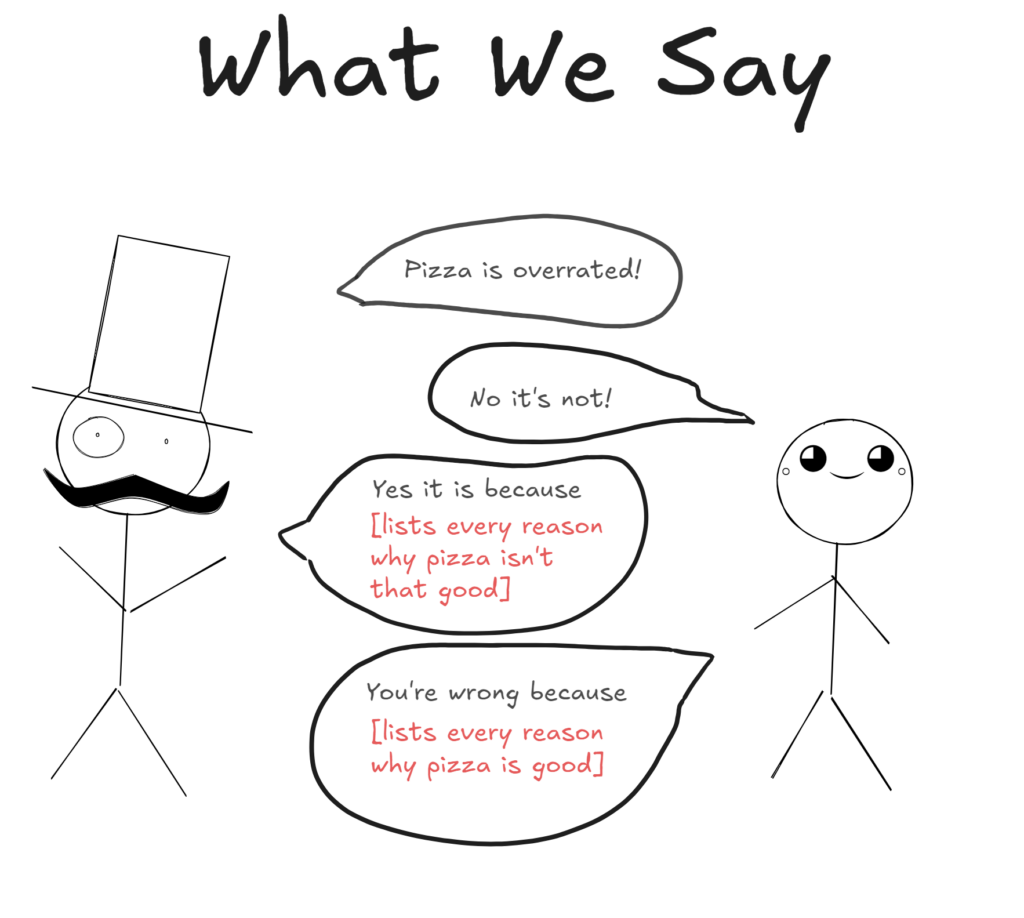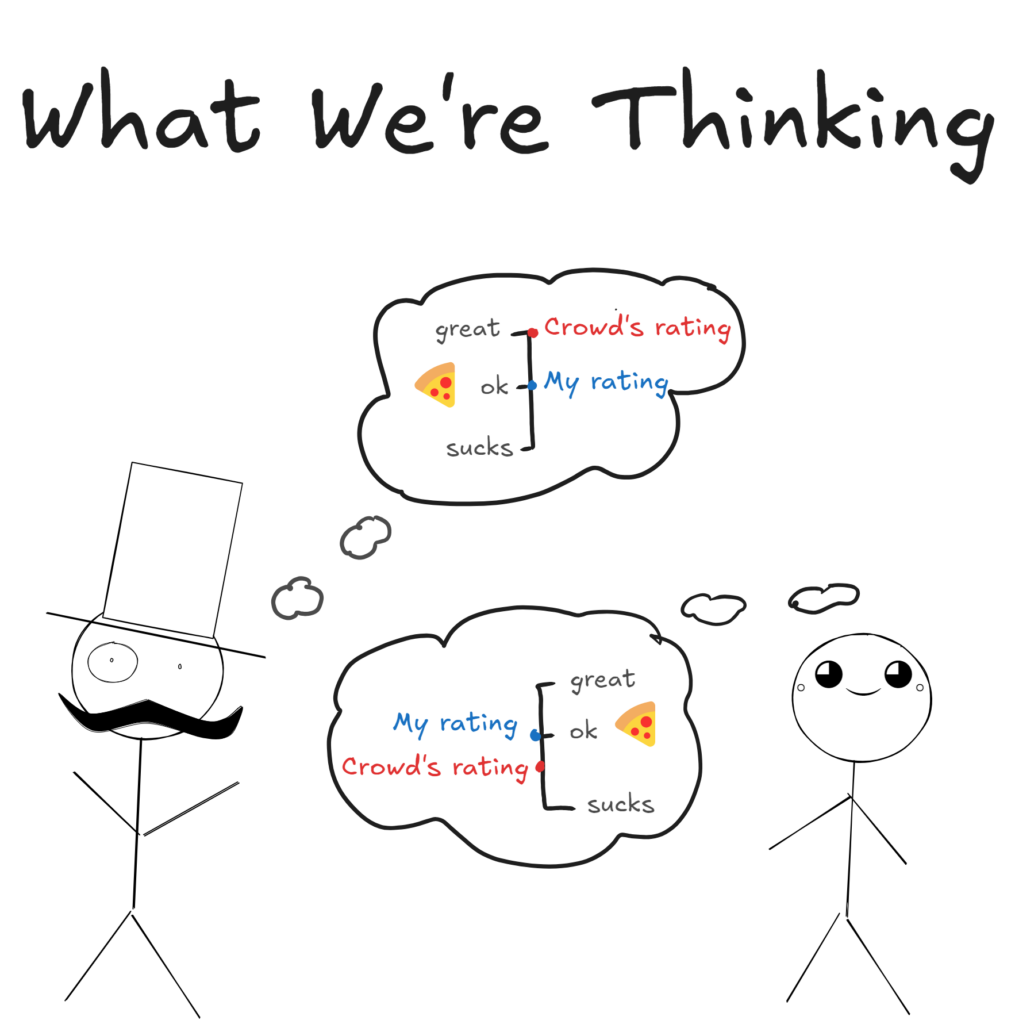Estimated reading time: 2 mins
It’s surprising how often I’ve found myself arguing with someone over whether something is overrated or underrated.

The problem is that a claim that something is “overrated” or “underrated” uses a single term to convey two judgements:
- What you think the ‘correct’ rating is; and
- What ‘the crowd’s’ rating is.
The listener may agree that something is “overrated”, while disagreeing with the speaker on both #1 and #2. Alternatively, the listener may agree on what the correct rating (#1) is, but disagree on #2 and therefore disagree on your overall statement.

What’s the harm?
It’s fine to use terms like “overrated or “underrated” as mere icebreakers or prompts. On the Conversations with Tyler podcast for example, Tyler Cowen rattles off lists of random things — social sciences, Karl Marx, George Harrison — and asks his guest whether they think it’s overrated, underrated or properly rated.
I admit I throw these terms around too because sometimes the crowd seems so obviously wrong that even if I don’t know what the ‘correct’ rating is, I can at least point out the crowd’s wrongness. When discussing things like pizza or Costco, the stakes are non-existent.
But I’ve also found myself in more serious debates about whether specialisation is “overrated”; or if crime is “as bad as people say”; or whether people place “too much weight on” the role of nature as opposed to nurture—all of which were unnecessarily protracted because we had very different assessments of the “crowd’s rating” because we hung out in different crowds.
If I were to be honest, my use of such terms like “overrated” or “underrated” usually masks sloppy thinking. We like these terms precisely because they’re vague. It’s impossible to determine what the “crowd’s rating” is, since it depends on the crowd. So we’re never proven wrong.
If you find yourself using these terms a lot, share your thoughts in the comments below
2 thoughts on “Overrated or Underrated is Overrated”
I very much wanted to argue that Overrated vs Underrated is Underrated, and that in fact Overrated vs Underrated is Overrated is actually Overrated! But alas, that would be silly.
I appreciate the insight about our views of overrated-ness are relative to our impression of the crowd’s opinion. It immediately made me think of something that often comes up for me when dealing with critiques of the rise of “woke” culture, where public intellectuals on the centre-right give the impression that ultra-woke-ness it is everywhere, so much so that it’s generally accepted as fact, even by those around me (someone who spends almost all their time around left-leaning intellectuals) and yet hanging around in this crowd, I almost never see the examples of extreme woke-ness I hear lamented about online. But as you point out, this issue is concerning a load of unquantifiable variables.
– How many people are actually bellyaching about this (outside my filter bubble)
– How many of those around me assume that ultra-woke-ness is prevalent from personal experience
– How many of those around me assume that ultra-woke-ness is prevalent from listening to centre-right public intellectuals online
– How accurate my impression is that the prevalence of ultra-woke-ness is “generally accepted” by those centre-left intellectuals around me
– How closely my anecdotal experience maps to statistical reality
– How this stacks up as an issue in terms of societal-risk in relation to other issue (for instance insurrection)
I think the idea of a risk being over-blown is the same issue as being over-rated. It’s interesting to think about how to clarify this with the sort of multi-dimensional relative physics you raise at play.
Yeah, woke-ness is a good example. I’m sure there are some real examples of woke-ness “gone too far”. But you can find examples of almost anything when you look hard enough. I’ve personally found it better to just add my judgment of any concrete example and reserve judgment for the most part on the broader question of whether something is overrated/underrated/overblown, etc.
For instance, “I agree that seems like a case of wokeness gone too far. But I’m not sure how representative it is of people’s everyday experiences.” If they insist that wokeness is “more widespread than I think” I’ll just point out that we can’t really know that. I’ve found this tends to short-circuit disagreements (at least when engaging with mostly reasonable people).